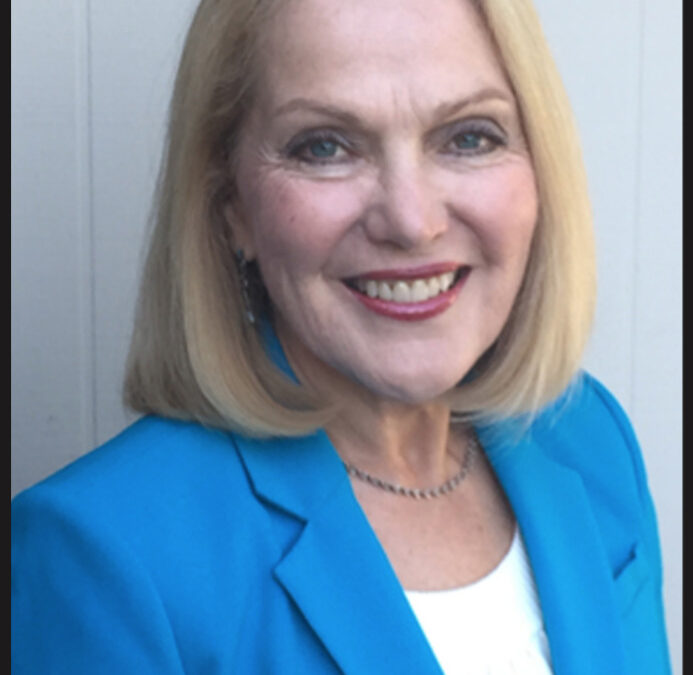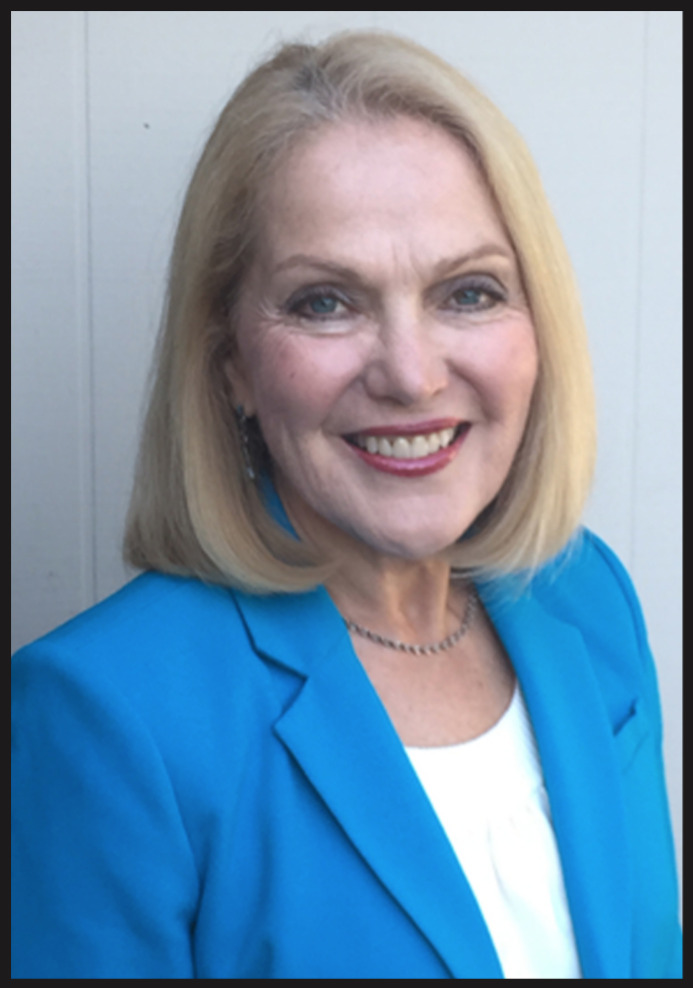
Mar 16, 2015 | aging, aging investor, elder investor, elderly, financial elder abuse, investor, scammers, senior citizen investor, senior investor
Attention Financial Professionals: Are You A Hero? We want to highlight you!
 We are very interested in financial planners, wealth managers, RIAs, CFPs, trust officers and others who have protected elderly clients from abuse or stopped it after they became aware of abuse or predatory practices. Without a fiduciary standard, inappropriate products are being sold to elders by some in the financial field. And that doesn’t even address the outside predators who seek out elderly victims. They’re everywhere.
We are very interested in financial planners, wealth managers, RIAs, CFPs, trust officers and others who have protected elderly clients from abuse or stopped it after they became aware of abuse or predatory practices. Without a fiduciary standard, inappropriate products are being sold to elders by some in the financial field. And that doesn’t even address the outside predators who seek out elderly victims. They’re everywhere.
At AgingInvestor.com we are allies of the elderly, having spent years of our lives serving them, my wife as a nurse and then a litigator and myself as a mental health provider.
We will be sponsoring a contest in early April to feature the best of the best in financial services who stopped or prevented elder abuse.
My wife and partner Carolyn Rosenblatt blogs at Forbes.com (Aging Parents) and AgingInvestor.com to keep those in this community informed. We want to tell your stories. We hope to educate others in the field and this community by highlighting the actions of courageous people who stepped up to stop scammers, thieves and greedy players inside or outside the financial services field itself. We have a few great candidates already! We know you’re out there. Submit your own name and story or that of someone you respect for their abuse prevention efforts to hero@aginginvestor.com. If you need to remain anonymous for political or personal reasons, we will honor that and not use your real name, location or work place. We want to share your exemplary actions. And if what you did was leave a large organization so you wouldn’t be part of abusive practices there, we think that’s heroic too. Please tell us. We’ll protect your identity totally.
Your stories will inspire others to follow your lead. We’ll feature you in our newsletter with your permission, and let our social media contacts know that you are a standout among the rest. If you want anonymity, we will simply point out the problems that spurred you take the steps you did and that we want to honor the decisions you made. We applaud you.
Thanks for joining us.
Sincerely,
Dr. Mikol Davis & Carolyn Rosenblatt, RN, Attorney
AgingInvestor.com

Mar 12, 2015 | aging, elder investor, elderly, financial elder abuse, investor, scammers, senior citizen investor, senior investor
Heavy advertising by those selling reverse mortgages could convince anyone that this product will get you to nirvana. The sellers tout them, promising to let you “live the life of your dreams” or “have a better retirement”. Really?
The Federal government has responded to numerous complaints by borrowers about reverse mortgages (home equity conversion mortgages or HECMs) and issued a summary report. It’s available through the Consumer Financial Protection Bureau but if you don’t have time to read it, we summarize for you it here at AgingInvestor.com.
The reverse mortgage complaints submitted to the CFPB demonstrate the wide range of problems some consumers have with these loans. The largest volume of complaints, according to the report, center on difficulty in trying to change the terms of the loans. When borrowers want to refinance the loan or add borrowers, they can’t. Some borrowers do not understand that the loan proceeds as well as accrued interest on the loan over time substantially decrease the amount of available equity. What this tells us at AgingInvestor.com is that despite mandatory “counseling” before getting the mortgage, the borrower is not getting the message. Whether that is a defect in the counseling itself or the consumer being swayed by the “live the life of your dreams” advertising we do not know. What we do know is that borrowers get upset when they find out they can’t refinance these loans.
Other consumers complain that lenders refuse to lower their loans’ interest rates and they feel that as interest rates have declined, that they’re being overcharged. Trying to change the terms of the loan at all is very problematic. When adult children want to be added as borrowers they can’t be added. Borrowers do not understand that adult children can only retain the home for an aging parent by paying off the entire loan balance or by paying 95% of the value of the home. Is this a failure to understand the mandatory counseling their parents were given? Or is it that this critical detail is lost in the effort to get an older homeowner to take the loan, “live the life of their dreams” and have a wonderful time with the loan proceeds?
As we see it, the worst outcome of a reverse mortgage occurs when title is transferred to one spouse in order to get the HECM, perhaps because he or she is of an age that makes it possible to borrow more equity than the other spouse could do. The loan is taken in the name of that one spouse only. The borrowing spouse later dies. The non-borrowing spouse then will lose the home. Distraught widows and widowers face foreclosure in this scenario. Of course they can’t pay off the loan or they wouldn’t have needed the HECM in the first place. Some consumers report that their loan originator falsely assured them they would be able to add the other spouse to the loan at a later date.
The U.S. Department of Housing and Urban Development (HUD) is changing this horrible problem. It issued a mortgagee letter in August 2014 that provides that non-borrowing spouses meeting certain conditions, may remain in the home after the death of the borrower spouse but only for loans originated after the date of this letter. Most HECMs originated after August 4, 2014 will be made in both spouses’ names. For the rest of the many borrowers whose loans are older than that, a widowed person will likely lose the home after the borrowing spouse dies. So much for living the life of their dreams.
If you are in a position to advise clients about the pros and cons of a reverse mortgage, be sure that you know these details before directing anyone to such a loan. Yes, in some cases, a HECM can be a lifesaver. But as we see it, that’s only a good idea when there are no other options available to pay the basic cost of living in the home and surviving there to the end of life. It’s not prudent for any consumer to have a lavish lifestyle on borrowed money, only to run out of equity when they need money most: when disabled and in need of care. Consumers need to be cautioned not to take out equity and recklessly spend it as if there were no consequences to depleting what is for many, their only significant asset.
Help us keep elders informed. Please share this with a friend, a client or member of your own family.
Until next time,
Carolyn Rosenblatt, RN, Attorney, Mediator
Dr. Mikol Davis, Psychologist, Gerontologist

Feb 13, 2015 | aging, aging investor, elder investor, elderly, financial elder abuse, investor, scammers, senior citizen investor, senior investor
 When Laura called me at the urging of her own financial advisor, she was in a crisis. Her father, Jack, age 95 lived in another state and was in a nursing home. She and her sister were worried about a problem: their brother Robbie was taking advantage of their dad and no one was stopping him.
When Laura called me at the urging of her own financial advisor, she was in a crisis. Her father, Jack, age 95 lived in another state and was in a nursing home. She and her sister were worried about a problem: their brother Robbie was taking advantage of their dad and no one was stopping him.
Robbie had been sponging off of Dad for years, Laura told me. She knew Jack probably had dementia, and she had been appointed his Power of Attorney agent, but the transition had not happened yet for her to take over his finances. Robbie had flown out to see Dad from the state where Robbie lived. He took his frail father to Jack’s financial advisor and had his Dad ask the advisor to give Dad a cashier’s check for $50,000. The advisor knew that his client was being manipulated into asking for the money but he gave it to Jack anyway. It was not as if Jack was extremely wealthy. He had limited funds in the account.
Then Jack, with Robbie prodding him, asked his advisor to give him a debit card for his cash management account. The advisor knew full well that Jack’s money could go out the door and into Robbie’s pocket. He decided to deal with the potential abuse by “dragging his feet” for three months. He knew Laura and knew that she was Jack’s agent on his legal documents. He called her describing the call as “on the Q.T”and told Laura that he “had” to comply with the request for the debit card. Laura insisted as the power of attorney that the card should be mailed to her. After she got it, I advised her to destroy it.
The estate attorney who had prepared Jack’s trust knew that Laura should take over her position as Jack’s successor, but he failed to urge her to do so right away. He also failed to give her enough direction about how to accomplish this so she could stop any other actions by Robbie to get Jack’s money. This was one professional failure—the lawyer did not recognize the urgency nor try enough to stop elder abuse.
When I met with Laura, I instructed her exactly how to get the needed doctors’ reports on Dad to meet the requirements Jack’s trust had in it that would permit her to take over responsibility for him. She did so at my urging, right away. I encouraged her to immediately give Dad’s advisor a letter instructing him to cease any transactions initiated by Jack as Jack did indeed have dementia and the doctors had verified that he was no longer capable of managing his affairs. She did that, too. It had also come to light that Robbie had gotten Dad to transfer funds into an account to which Robbie had access and that Robbie had already nearly drained that account of another $30,000.
I sat with Laura and helped her draft a firm letter to Robbie letting him know that the end had come for manipulating Dad and that she was now in charge. He was furious! Ugly emails from Robbie and threats followed. The saga did not end there, but with help, Laura was able to stop any further financial abuse of her father.
The second and most distressing failure of a professional in this true story was the action by Jack’s financial advisor. He did not seem to have any idea of what to do to stop elder abuse that he admitted was going on in dealing with his client
The takeaway here is that every advisor who sees potential elder abuse can and should do much more to protect an elderly client from this kind of manipulation. Every professional has to give up being a slave to the outdated notion that you always have to do what a client says even if the client is seriously impaired. That impaired person is not the client you signed up and you must address this problem.
Learn 5 things every professional should do when you suspect financial abuse by clicking HERE for your free tip sheet.
Until next time,
Carolyn Rosenblatt, RN, Elder Law Attorney
Dr. Mikol Davis, Psychologist, Gerontologist

Feb 6, 2015 | aging, diminished cognition, elder investor, elderly, financial elder abuse, investor, scammers, senior investor
 Competition for clients has always been there, but as investors age, something you might not have anticipated can happen. The vultures are out there. Competition with you for their invested assets can become an increased threat when an older client’s judgment is compromised. With impaired judgment, they might fall for the “free meal” seminar, a device to get them to buy an inappropriate product.
Competition for clients has always been there, but as investors age, something you might not have anticipated can happen. The vultures are out there. Competition with you for their invested assets can become an increased threat when an older client’s judgment is compromised. With impaired judgment, they might fall for the “free meal” seminar, a device to get them to buy an inappropriate product.
An older client who has always behaved a certain way about her investments can go through changes because of cognitive decline. You have absolutely no control over this process and in fact, you may not even notice it initially. Cognitive impairment can come on very subtly at first. What it can do over time is to cause your client’s ability to make good judgments about finances to go downhill.
A person who is actually ok financially may start to worry unreasonably that he is going to run out of money. Or a spouse gets ill and the costs of care skyrocket, making your client think he needs to do something fast to get a high return on his investments. There are a lot of slick salesmen out there who know this and count on it. They are the first ones to offer your client a free meal and a so-called “financial education seminar”.
According to FINRA research, 64 percent of those responding to a survey of people age 40 and over had been invited to an “educational” seminar with a free meal offered. FINRA, the SEC and state regulators conducted more than 100 examinations involving free-meal seminars.
They found that in half of the cases, the sales materials contained claims that appeared to be exaggerated, misleading or otherwise unwarranted. And fully 13 percent of the seminars appeared to involve fraud.
These highly polished and sleazy sales people are more than happy to tell your client that they can do a lot better for the client than you are doing with your old, conservative and safe investment strategy. They dress well, have engaging personalities and are looking for someone who is fearful or easily manipulated. That could be your client. No matter how educated, smart or experienced your client is, anyone can suffer from loss of cognitive ability. Aging investors may not be as sharp as they were in a younger day, due to memory loss or other issues. The early warning signs of memory loss also suggest erosion of financial judgment. That can lead to impulsive purchases and lack of financial judgment about the risks.
What can you do about this? You have an opportunity to do a campaign with all your older investors which can enhance your image, increase the frequency of contact with them and educate them in the process. It could be a series of emails or personal letters. Remember that FINRA has issued a warning to all investors to be wary of the free meal “educational” seminar. You are the good guy or gal, bringing them this important information from regulators who want to protect them. The body of your email or letter can contain this information:
For every consumer, note these points FINRA wants you to keep in mind before you attend any “investment” or “financial education” seminar, especially with a free meal.
1. Investment seminars are intended to sell you something. Their purpose in not merely educational.
2. Beware of the persuasive effect of a high end venue, an expensive meal and a smooth, well-dressed presenter. These are collectively designed to impress you, but it does not mean that the opportunity being pitched it right for you.
3. Find out who is really sponsoring the event. At times, insurance companies, mutual funds or other companies offering their products are behind the pitch, financing the event and expecting that the speaker, who could be someone you know or recognize, will use the event to drive sales of their products.
4. You can use FINRA’s Broker Check (800) 280-9999 to see if the presenter is licensed to offer financial products. If the sponsor is an insurance agent, find out if he is licensed through your state department of insurance or the National Association of Insurance Commissioners. You can find out information about the one offering products for sale through your state’s securities regulator or the North American Securities Administrator’s association at (202) 737-0900.
Feel free to copy this right into a letter to your clients today. Vary it with your own words and headline. Anyone age 50 and up would be a good candidate to receive it.
Stay in communication with your aging clients.
Let them know you are concerned about the prevalence of these offerings by supposedly qualified people and ask if they’ve been solicited to attend any of them. If they tell you they want to go to a seminar, dig deeper. Ask questions. Offer to check out the presenters. If you step up the frequency of contact, particularly with an automated system of emailing your clients, you can only enhance the relationships you have with them. And in the process, you can not only build loyalty but perhaps save some of them from being seduced away from your responsible management by educating them about potential financial danger.
We encourage you to comment and share your own stories so that we all can become better informed and educated about new scams and ways to protect our older clients and family members.
Carolyn L. Rosenblatt, R.N., Elder Law Attorney & Dr. Mikol Davis, Psychologist, Gerontologist
AgingParents.com & AgingInvestor.com

Dec 19, 2014 | aging, aging investor, diminished cognition, elder investor, elderly, financial elder abuse, investor, scammers

When your aging client has contact with you, consider it an opportunity to educate them about more than the status of their portfolio you manage. Your client’s efforts to maintain financial safety can be thwarted by clever scammers who are constantly devising new ways to take advantage of them. You are in a perfect position to help keep them informed about financial abuse and the latest information on tactics scammers use. Don’t make it someone else’s problem. Make it part of your services.
Take for example the “grandma I need help” scam. My 92 year old mother in law told me about this one. Someone actually had the nerve to try it with her, but she’s smarter than they were and it didn’t work. However, one of her friends did fall into the trap. Somehow the scammers got a list of phone numbers of many of the seniors living in the nicely appointed neighborhood in her retirement community. They get a young man to call from their list of numbers and say “Grandma?” when a woman answers. If she thinks it’s her grandson, she’s bait. The thief then says he’s in trouble, with some made-up some story to get her to worry about him. He then asks her to wire money right away to get him out of this jam. The unsuspecting do it. And get taken.
A newer scam is the gift basket trick. Again, the older person’s phone number and address are known to the thieves. They call the potential victim to be sure he’s home and then tell him they’re Express Courier or any other name and they have a gift delivery. Will he be home in the next hour? If the victim says “yes, I’ll be here” an official looking truck with a courier name on it pulls up within the hour, and the delivery man hands the victim a lovely basket of wine and flowers. The trap is in the delivery man then asking the victim for payment for a “delivery fee’’ because the basket has alcohol and had to be hand delivered to an adult rather than left on the doorstep. Or so they say. The fake courier insists on a credit card payment rather than cash, even if the fee is just $3.50. He uses a small portable credit card scanner and asks for the PIN number for any debit card. What the victim does not know is that the scanner is a device used to steal the credit card information, in the way this kind of information has been stolen from ATMs and gas station credit card machines in the past. The scanner the courier uses even prints out a nice little receipt, making it all the more believable.
The victim doesn’t realize his credit card information has been used to make a dummy credit card with his name on it, which the thieves quickly use until the victim cancels the card. Thousands of dollars can be stolen from the victim’s by ATM cash withdrawals and numerous purchases before the victim knows what is going on. People are getting tricked by this. The scam is working for the scammers and you know they will keep doing it until the public gets well informed enough to decline the offer of the fake gift delivery over the phone.
If you are managing accounts for older clients, take the opportunity to help educate them about these nasty fraudsters who are easily able to get their names and phone numbers. You can make a difference. Tell them in person or make a handout about scams to email or send to them. They may see you as protective of their financial safety in more ways than one. That can uplift your image, always a good thing. We’ll keep you informed about elder abuse and how to protect your aging clients right here at
AgingInvestor.com.
Until next time,
Carolyn Rosenblatt, RN, Attorney

Nov 22, 2014 | aging, aging investor, Alzheimer's disease, diminished cognition, elder investor, elderly, financial elder abuse, investor, senior citizen investor, senior investor
 We know that abuse of seniors is a growing problem. Based on information from the National Center on Elder Abuse, the majority of abusers are family members. However, only 44 out of 1000 instances of abuse are reported to authorities. Why aren’t more cases reported to the very authorities capable of stopping the abusers?
We know that abuse of seniors is a growing problem. Based on information from the National Center on Elder Abuse, the majority of abusers are family members. However, only 44 out of 1000 instances of abuse are reported to authorities. Why aren’t more cases reported to the very authorities capable of stopping the abusers?
It seems to me that most family members are simply unwilling to “rat out” another family member even when they know that abuse is going on. When it comes to the seniors themselves, there is shame and embarrassment associated with being taken advantage of by someone close, especially someone they surely trusted. There is hesitation and fear. They want to talk about it but not do anything about it. The reluctance to report the abuse to Adult Protective Services is not limited to the seniors who can’t bear to call the authorities about a son, daughter or other relative.
I recently received a call from a distressed sister of a brother that she was convinced was stealing from their parents. He had total control over their parents, one of whom had dementia. His parents had appointed him as the agent on both the Durable Power of Attorney and the Advance Healthcare Directive. This gave him the legal authority to make both financial decisions without being accountable to anyone else and all healthcare decisions as well. I listened patiently to all the reasons she thought her brother was taking her parents’ money and using it for himself. I asked her if she had called Adult Protective Services.” No”, she said. When I asked why not she said “I don’t want to get my brother in trouble”. Where is the logic in that?
In another case, the elder herself had called. “I gave my grandson a big loan and he hasn’t paid it back,” she said. “But now I need the money to live on”. She described how her favorite grandson had taken title to her mobile home and gotten a loan, even after she had “loaned” him most of her savings. I explained that her chances of getting paid back were probably not very good, but the least she could do was to report what had happened to authorities. I advised her that taking a “loan” from an 80 year old and not paying it back would likely be considered elder abuse and it should be reported to APS. “Would my grandson go to jail?” she asked. I told her I didn’t know but it can happen when someone has committed this crime of elder abuse. She said, “I don’t want my grandson to go to jail”. Unfortunately, I am sure she did not follow up or do anything more about the problem.
Seniors like the 80-year-old woman are typical of why elder abuse does not get reported and therefore prosecuted more often, even when a family member is well aware of what is going on and knows that it is wrong. They would rather suffer impoverishment than be the one to report abuse. In fact, these same victims may refuse to testify against a relative who has abused them, even when these cases are prosecuted. Charges may not stick when the victim is unwilling to testify, unless there are independent records to prove the case in court.
It is as much a problem of our emotions and fears as it is of the wrongdoing itself. We somehow justify the actions, we look the other way or we fear what justice will do to our abusive relative.
I wonder, where is the anger at a crime against a person who is easily taken advantage of by the abuser? Where is the advocacy for the vulnerable person who is also our relative? Why are we remaining silent in this growing, $2.9 billion dollar a year problem?
I would be willing to guess that there is someone reading this whose client has a financial abuser in a their family or knows of a family where this has taken place. I urge you to speak up. To my knowledge, you can remain anonymous in your reporting, just as you can with any crime. Whether or not the criminal justice system can prove the crime is not your problem. It is your problem to carry the knowledge of financial abuse with you and to do nothing to protect the elder. One day it could be you who is victimized.
We are all encountering an aging population and the crime of opportunity of abusing elders is not going away. I am hopeful that we will show enough concern, enough responsibility and enough guts to do the right thing when we see a wrong that needs our attention.
Nov 12, 2014 | aging investor, financial elder abuse, investor, senior citizen investor, senior investor
Welcome To AgingInvestor.com
Services from AgingInvestor.com are provided personally by Carolyn L. Rosenblatt and Dr. Mikol S. Davis jointly or individually by agreement.
We offer:
Webinars, customized or pre-recorded for you/your organization. Q & A included with live webinars (Pre-recorded, CFP Board accredited CE webinars now available on our website at your convenience).
Instructor led training workshops (ILT)- customized for your specific issues
Web-based instruction, constructed and designed with your preferred content. Interactive or non-interactive custom designs available. Work with us to develop your instructional design at your discretion or use our contracted designer for excellent results.
Policy Development Kits: get senior-specific policies in place with your “Policy in a Box” guidance. Step-by-step instruction, general parameters of a good policy, sample documents, and much more will help you get up and running. Best use is when combined with a consultation to help you implement what you develop for yourself or your organization.

Oct 20, 2014 | aging, aging investor, diminished cognition, elder investor, elderly, financial elder abuse, investor, scammers, senior citizen investor, senior investor
 As a financial professional, you may not be aware of what is going on in your elderly clients’ daily lives, but families sometimes find out about scammers who have victimized their loved ones. You could come across them too. An adult child of your client may mention a situation that is alarming or your clients may tell you themselves about this “great product” they’ve gotten. If it sounds odd, start asking questions.
As a financial professional, you may not be aware of what is going on in your elderly clients’ daily lives, but families sometimes find out about scammers who have victimized their loved ones. You could come across them too. An adult child of your client may mention a situation that is alarming or your clients may tell you themselves about this “great product” they’ve gotten. If it sounds odd, start asking questions.Here’s an example:
According to the Waterloo Cedar Falls Courier, an adult daughter discovered that her aging parents were spending thousands of dollars on supplements to fix a wide range of health problems. The scammers were from Las Vegas based Leading Health Source, and they had taken advantage of the elderly couple’s vulnerability to their sales pitch. It might not have been so bad if they had simply sold the couple a reasonable amount of nutritional supplements. But over a period of 20 months Leading Health Source had ripped off the elders for more than $44,000, a sum they couldn’t afford.
This is the piece to which we, at AgingInvestors.com want you to pay the most attention. In this instance, the daughter took action. She went to bat for her aging parents, rather than doing nothing or considering it her parents’ problem.
Leading Edge was investigated after the daughter reported the large sum her parents had paid to them. The daughter had attended an event held by Iowa Fraud Fighters at Kirkwood Community College. Presumably, she learned there that she should file a complaint with the state Attorney General and she did so.
The outcome in this case was very good for the elders. The matter was settled, and the Attorney General’s office demanded that Leading Edge pay back everything the couple had paid to them. That meant getting a check from Leading Edge for more than $23,000 to start and having the remainder of the credit card charges reversed.
The Courier, source of this story reported that the Attorney General’s investigators found Leading Edge well aware that the people they were selling to in this case were easily manipulated. Their telemarketers’ handwritten notes indicated that the elderly woman involved had “memory” issues and that her husband had dementia.
What can you, the professional, just managing money or offering products to your aging clients learn from this?
First, note that memory issues and dementia in an aging couple is a setup for fraud and abuse. If you think your own client may have these issues, even a little, beware. You could be prosecuted if you proceed with transactions. If law enforcement is contacted or FINRA is involved, you will be scrutinized. It could be, in the above example that Leading Edge owners and principals didn’t know what their unscrupulous telemarketers were doing. Perhaps the telemarketers were motivated by a commission or other sales incentive and an easy opportunity presented itself with an easy sale. But the principals were held liable nonetheless. They either failed to supervise adequately or they looked the other way. They are consequently barred from doing business in Iowa.
The second thing to learn is that family of your client may be a very helpful asset to the ethical financial services professional trying to preserve capital for a client. Understand your client’s family relationships and whom to trust. When even a whiff of possible abuse happens, you can report it to the authorities. You don’t have to be right if you suspect something. You just have to be reasonable in what you think is reportable problem. It’s better to report it with the facts you do know and have it turn out to be a false alarm than to take the chance of not doing anything and have your client suffer the effect of theft and fraud.
Until next time,
AgingInvestor.com

Oct 4, 2014 | diminished cognition, elder investor, elderly, investor, scammers, senior citizen investor, senior investor
 Two ruthless swindlers were arrested in New York for tricking an elderly woman out of her multi-million-dollar property in Harlem she had owned for over 40 years.
Two ruthless swindlers were arrested in New York for tricking an elderly woman out of her multi-million-dollar property in Harlem she had owned for over 40 years.
A home care worker bilked a frail elder out of her life’s savings of $350,000.
These stories keep coming up. Family members do it. Salesmen touting unsuitable annuities do it. Realtors collude with thieves and they do it. Even lawyers do it. They prey on unsuspecting or impaired elders to rip them off.
Financial elder abuse is a problem all across the world and it’s growing. We need to be aware.
My mother in law, Alice, is 90 and still very sharp. She would be hard to fool, but I know the right thief could probably do some harm if we weren’t watching closely all that goes on financially. At least she has the good sense to question something that sounds too good to be true. Here’s an example.
She got a check in the mail for $3800, legitimate looking, advising that she was the second place winner of a sweepstakes in Canada. She does play various sweepstakes. All she had to do, of course, was to deposit it and “pay the taxes” on her “winnings”. She was advised to contact her “claims agent”. No doubt, that professional thief would have done a great job convincing someone unsuspecting to deposit the check and send “taxes”. Of course the check is rubber and the money is gone before the elder finds out that the check has bounced.
Classic scam. Alice called the number and said, “How do I know you’re legitimate?’ The thief told her if she was suspicious, she should hang up. She did. She then called my husband, Dr. Mikol Davis, who did an internet search for the phony address and told her she had just thwarted a thief. Alice is with it enough to question the check. Millions of seniors with any cognitive impairment are not so able to question things like this.
What we know from research into Alzheimer’s Disease is that one’s judgment about financial transactions may be the first thing to become impaired when the disease is in the earliest stages. “Mild cognitive impairment” as doctors may call it, is not so mild when you think about the financial damage that can result. And the elder with this early warning sign of dementia may be living independently, paying taxes on time and otherwise appearing socially normal. For a time.
Professional thieves have certainly studied what makes elders vulnerable. They buy names of people who have entered contests like sweepstakes, and troll for the isolated and lonely ones who will talk to someone on the phone. The sweepstakes officials get paid for selling the lists and no one cares what the buyer does with them.
Elders are truly sitting ducks, easy prey. Isolation, confusion, forgetfulness, and fears about running out of money can all drive the susceptibility to entering into a “deal” with a clever scammer.
If you have an aging parent or loved one with any form of mild cognitive impairment, early dementia or other disease that affects thinking and judgment, here are seven basic things family can do to reduce the risks of ripoff.
1. Check in often. If your aging parent lives alone this is crucial. One of my clients at AgingParents.com emails her dad every day to check in. Others call every day or close to it. Aging parents may not think they need this but they do.
2. Ask to be a co-signer on the main bank account in case of emergency. Some aging parents will agree and some will resist, but ask regardless. It will allow you to do online monitoring of the account activity. A “new friend” who gets money from them is a huge red flag.
3. Have your parent sign a Durable Power of Attorney appointing a competent and ethical agent, which could be you, a sibling or trusted other. If cognitive decline happens, the agent can at least get the money out of the account and put into another safer one that the impaired elder can’t access. This is one way to stop the thieves who are looking for impaired elders. Nothing in the account, no gain for them.
4. Suggest having your parent use a licensed fiduciary to handle money if they don’t want you to do it. If there are issues of not trusting you, an objective professional can protect them from abuse. You might do research to find a reputable one for them. This is also a safe bet for elders you know with no adult kids.
5. Provide and encourage parents’ connection to others. Think of isolation and loneliness as two big risk factors in why elders get financially abused. If you can provide encouragement for them to get involved in activities, it will make them less likely to want to talk to a smooth, slick “friendly” con artist on the phone.

6. Monitor who comes into your parents’ home regularly. Even the most trusted housekeeper, gardener, caregiver or bookkeeper can be tempted beyond reason when their own financial circumstances change for the worse. Your parents are all the more at risk when they trust the familiar person, who can use trust to exploit them.
7. Do background checks on any home care helpers who are hired to work for Mom or Dad. The cost is modest, and you can find out a lot: bankruptcies, poor driving records, and of course, criminal convictions and civil cases. Licensed home care agencies may do background checks, but ask to be sure.
The ripoff artists out there are both clever and relentless, but we can stop many of their opportunities. Please don’t take your aging parents’ financial judgment for granted. It can erode almost without notice, even in the brightest and most accomplished elders.
Until next time,
Carolyn Rosenblatt
Dr. Mikol Davis
AgingInvestor.com

Aug 19, 2014 | aging, aging investor, diminished cognition, elder investor, elderly, investor, senior investor
 Financial advisors can spot and do something to prevent financial elder abuse. Advisors are in a unique position to observe their clients over years, sometimes decades. Knowing a client well gives them the vantage point to understand their clients’ normal general life situations as well as their patterns of using their accounts, which can make them well positioned to spot red flags and any unusual activity.
Financial advisors can spot and do something to prevent financial elder abuse. Advisors are in a unique position to observe their clients over years, sometimes decades. Knowing a client well gives them the vantage point to understand their clients’ normal general life situations as well as their patterns of using their accounts, which can make them well positioned to spot red flags and any unusual activity.
As part of the national legal community dedicating time to the protection of vulnerable elders I see communications from lawyers all over the U.S. with complaints that Adult Protective Services are not taking financial elder abuse seriously enough in many places. When it is reported, APS may dismiss it as “a civil matter” in which they have no interest. APS is essentially an investigative help to the criminal justice system. It can intervene when an elder is in physical danger. Social workers and investigators from APS look into reports of abuse and help the DA determine whether there is evidence sufficient to prosecute a crime. If the matter involves the undue influence of a family member and the elder seems willing to give away money, even if duped into doing so, APS is unlikely to take any action.
Financial advisors cannot rely on the their local community’s APS to protect their clients when abuse is suspected. Particularly in the case of family, close associates, and caregivers, APS may not wish to interfere unless or until an obvious crime has been committed. Many of these abusive situations are not so obvious, or the elder appears to be willing to give away his assets, and he may not see that anything is wrong. it is up to others to work to stop the abuse, including financial advisors, who may be in a highly trusted position with the elder.
The financial services industry, generally, has avoided certain kinds of communication with family of aging investors due to privacy laws, concerns which they interpret as precluding them from sharing financial information. I do not agree that privacy should stop advisors from communication with family when an elder clearly needs protective action. There is a way around the privacy question. Policy can be created to obtain permission from every client to communicate with a family member or trusted other appointed to step in when the advisor (and compliance) have reasonably concluded that the elder is being taken advantage of financially or otherwise.
If you see something, say something is what we are supposed to do to stop terrorist attacks. It is also what we need to do to stop elder financial abuse. The financial industry needs to develop new, forward looking, senior specific policies to address the rampant problem of elder abuse.
Here at Aging Investor, we are doing our part to help by developing educational materials for industry professionals. We want every professional to recognize the red flags warnings of potential abuse, to understand diminished financial capacity and to how to get the necessary document in place around the issue of privacy. Aging expertise from outside the financial services field is needed for all of these points. I hope all advisors, their compliance departments and organizational heads will pursue what FINRA has urged on you since 2008: that senior-specific policies be put in place to stem the rising tide of elder financial abuse of their own aging clients. We offer resources such as our CE courses and have written a book to help you better understand and manage your aging clients.
Until next time,
Carolyn Rosenblatt
AgingInvestor.com

Aug 15, 2014 | aging, aging investor, elder investor, elderly, investor, senior citizen investor, senior investor

Doesn’t every financial advisor want to stand out from the crowd? Be better at delivering services? Somehow get a reputation as a cut above the average guy or gal in the biz?
If you are seeking to distinguish yourself, you can. The secret is not in getting better returns, finding unique ways to protect assets or getting it right with your investment strategies. It’s in offering a different service from the other guys in addition to doing all the money management, usual things well.
The different service we’re talking about is looking at your older client’s age, making a plan to look at all the aspects of their lives that are likely to change as they age and being an educator and advisor to help them plan for those things. This is not limited to figuring out how much your client will need in retirement. It goes way past that, and the issue of housing. Yes, your role as advisor will go beyond financial matters into the personal and the so called “soft skills’!
Does this make you uncomfortable? “I just manage money” you may be thinking. But the financial picture is connected to the person, who is usually connected to a family. The finances are not in a vacuum with no relation to an investor who is aging, and her needs as she gets older and may lose her ability to make sound financial decisions. This is not about merely preserving assets and making the money last. People are of course affected by the aging process, which brings with it risks. One of those risks is dementia and loss of financial capacity for accepting your advice. What then?
“I’ll worry about that when my client gets old” you say? The problem with that thinking is that you don’t know when your client is “getting old”. Dementia is a sneaky brain disease that usually develops over years. The signs are subtle. And dangerous. The risk of Alzheimer’s Disease, the most common kind of dementia doubles every 5 years after age 65. 5.2 million people already have it. Lots more are expected to develop it as Boomers age. One day, as you avoid conversations about possible loss of financial capacity, you may find that it is too late to get your client to sign anything, agree to anything, or worse yet, that he is a victim of financial abuse.
If you truly want to stand out as an advisor, not just for being a great producer, but for offering cutting edge service, get the training you need to make that service include skill in addressing and anticipating possible loss of capacity in your clients. Get the right document in place to protect your client and protect yourself from regulatory questions about privacy.
If you are considering this suggestions seriously, visit us at AgingInvestor.com and sign up for
one of our online courses. We’ve got the aging expertise you may not have yourself and you can get a lot smarter about aging clients as you get some training.
Meanwhile, think about becoming a unique service provider who is branching into an area no one can avoid: our populations is living longer than ever. You are in a great position to be a forward thinker about aging issues with your clients as a part of your work. You can take pride in it.
Until next time,
Carolyn Rosenblatt, RN, Attorney
AgingInvestor.com

Aug 13, 2014 | aging, aging investor, diminished cognition, elder investor, elderly, investor, senior citizen investor, senior investor
There is a buzz going on about the problems financial professionals are having with clients who are aging and losing capacity for financial decisions. It directly affected Kathleen Pritchard, head of business development at Legg Mason.
Her father-in-law was diagnosed with Alzheimer’s disease at 73 and she and her husband approached the father’s financial advisor for help. He had been managing an estate worth over 8 million dollars. He said,
“I basically don’t do any of that. I just manage your dad’s money.”
(more…)

Aug 4, 2014 | Alzheimer's disease, diminished cognition, elder investor, elderly, investor, scammers, senior citizen investor, senior investor
 Your elderly clients are ripe for scammers to pick. How is it that these clients, some very intelligent and accomplished, fall for these obvious ripoffs?
Your elderly clients are ripe for scammers to pick. How is it that these clients, some very intelligent and accomplished, fall for these obvious ripoffs?
In a typical example the U.S. Attorney’s office charged six defendants in a fraud scheme targeting the elderly .This time it was a lottery scam involving theft of a total of $400,000 from various victims. . We see these reports often in the news, to the point that they seem very repetitive. The characters and the amount of money stolen from elders changes but the methods are the same over and over. Other scams bring in millions from their vulnerable victims. The thieves in this case were caught. Most are not.
Why do elders fall for these things? Why don’t they get that the “Nigerian prince” or the “Jamaican Lottery” are clearly bogus and not to be trusted? Isn’t it obvious?
There are various reasons why elders are such easy prey for these thieves. One root cause is isolation and loneliness, a fact of life for many seniors who are not closely monitored by loved ones. A pleasant, slick professional calls on the phone in a friendly and engaging manner and traps the vulnerable elder with kind words, attention and a feeling of connection. The thieves are trained and smart. They smell the kill. They know exactly what to say to get the elder to trust them.
Another very important factor is diminished cognition in the elder.The crooks know that if they have a thousand names purchased from magazine subscribers, U.S. lottery or state contests and they know the ages of those on the list, that their chances of finding victims are excellent. Some of the elderly on the lists will be just impaired enough that they can’t see a scam coming. At least a third of those aged 85 and above have dementia in some form. Scammers simply buy the lists and start calling. And there are no restrictions against selling the names and personal information such as ages, phone numbers, addresses, etc.to the highest bidder. They can acquire the name and age of every subscriber to The Reader’s Digest, for example, providing fertile ground for seeking victims. Research into the impairments of Alzheimer’s Disease tells us that financial judgment may be the first kind of judgment to erode, and it is not obvious at the beginning stages, though the impairment is significant.
Another reason why seniors fall for these ripoff schemes is that they feel financially insecure. If there is a downturn in the market or whatever investments an aging client holds, he may feel a need to get easy money or a high return, and when a con artist offers that, he’s likely to fall for it. The right combination of loneliness, isolation, early dementia and fear make him an easy target.
Can you do anything about the problem?
I think you can. If you do care about your aging clients and want to remain a trusted advisor, a first protective step is to be aware of the risk of scams targeting the elderly. At AgingInvestor.com, we recommend developing a policy for all aging clients that includes staying in more frequent contact with them than you are required to do. Here are 3 things that sort of policy might include:
1. Schedule monitoring of how the elderly client is doing in general on a regular basis, the frequency of which you determine by thoughtful planning. (Quarterly? less often?) Check in by phone. Reassure your client when investment losses happen, and ask how he’s feeling and what he’s doing in his personal life. This does take time, but it can be very helpful to renew the client’s trust in you and remedy somewhat the feelings of isolation that can accompany aging.
2. Pay particular attention to recently widowed aging clients. The aftermath of loss of a spouse can be a dangerous time because of grief. That makes people vulnerable to begin with and when you add some cognitive impairment to the mix you can see that thieves love the opportunity to cultivate these elders. Consider that deaths are public records and that scammers can easily collect lists of the recently widowed to pursue with their bogus offers. They may start the conversation by expressing their phony empathy for the person’s loss and work on a relationship after that.
3. Educate your client. She may have heard of scams and have a vague understanding of how they work, but not be ready to spot one when the phone rings with any scheme to defraud her. If you provide a respectful reminder, using a recent story of elder abuse by scammers published in news reports, which you can easily find any time, you just might cause your client to think twice before becoming engaged in conversation with a stranger who seems so nice and friendly. You can do your part to help your aging clients to beware of phone calls, contests and unknown people asking for personal information or money.
My mother in law, Alice is still quite sharp at age 91. Someone tried the “lottery winner” scam with her too. She called the number on the letter from the “Lottery Authority” and asked how she would know if they were legitimate. The accented voice on the other end of the call said “well if you think this is fake, you can hang up.” So she did. End of scam. Not all 91 year olds are so alert. Given that, the financial advisor may be one of the few trusted people in a position to help them create a line of defense.
Would you like to develop a policy specifically geared toward keeping your aging clients and keeping them safe from abuse? Get expert help with policy development and implement it with training at AgingInvestor.com.
Until next time,
Carolyn Rosenblatt
AgingInvestor.com

Jun 12, 2014 | aging, aging investor, Alzheimer's disease, investor
Alice, The Unsophisticated Investor
Alice, my mother in law, is blessed with a great memory and pretty good health for a woman of her age. She works at it. She’s been a widow for 6 years now. Dad always handled their finances. Since she’s been on her own, she relies on her two adult children and an accountant friend to guide her about her investments. She was referred to a financial advisor known by a family member. She thought things were fine until a year went by, the market was doing well and she had no gains at all in her portfolio. She’s comfortable, but not wealthy by most measures. There is enough to take care of her, though full time care would eat up a lot of what she has. Luckily at this time, she is able to remain independent.
When She Discovered The Truth
Alice decided to change financial advisors. It was then that she learned, to her dismay, that her other advisor had done something that really got her angry. He had taken 10% of her investable assets and put them into a real estate investment trust (REIT) that could not be liquidated without a substantial financial penalty to her. She is not savvy about complex investments and relies on others for advice. She relied on her advisor a lot. She is clear that she needs to watch out for herself. She says the advisor never told her what he was doing with this investment and never explained that she would not be able to access the funds if she needed them unless she suffered a loss, in the form of a penalty. He, of course says he told her all about it and she agreed. She doesn’t believe him. My husband, Mikol, interviewed her about this and put it on YouTube. Here’s what Alice has to say. http://tinyurl.com/pmqf3j2
In the July 14, 2013 InvestmentNews, Dan Jamieson reported that the Financial Industry Regulatory Authority and the state regulator in MA are cracking down on exactly the kind of nontraditional, illiquid investment the financial advisor chose for Alice. Mr. Jamieson reports that In February, Massachusetts settled a case against LPL, which agreed to pay at least $2 million in restitution and $500,000 in fines related to the sale of nontraded REITs.
State regulators in Massachusetts settled their cases against five high profile firms who agreed to pay a total of $6.1 million in restitution to investors, and fines totaling $975,000.
FINRA CRACKDOWN
State regulators aren’t the only ones cracking down on alternatives.
FINRA also warned members in 2012 in its annual exam priorities letter that it was “particularly concerned about sales practice abuses [and] yield-chasing behaviors” that might lead investors into unsuitable complex products.
Products under scrutiny by FINRA in 2013 included business development companies, structured products, nontraded REITs and private placements.
“Finra grinds us on structured notes and commodity-linked notes,” said the president of a broker-dealer organization, who asked not to be identified.
The regulators are reported to have found out that in the REIT cases, people didn’t know what they were investing in. We think that is true for Alice. We also think her advisor, knowing her lack of sophistication, took advantage of her for the sake of his commission. His justification is that “she didn’t need the money” and that “she was investing for the benefit of her heirs”. Her family, particularly her son, thinks that is rather arrogant of him. How does he know whether she’ll live to be 100 and whether she will need the money? Furthermore, Alice is not investing “for the benefit of her heirs” when she is relying on her funds to take care of her own needs for the rest of her life.
What We Did
As soon as we found out about the REIT sold to Alice, then 90, and how illiquid it was and for how long, we confronted the advisor with a letter and sent him a copy of the Investment News article. He called shortly afterwards. He tried to justify his actions, but was told very politely by my husband that Alice was to get full restitution or a FINRA complaint would be promptly filed.
Permission of various kinds had to be obtained. The advisor had left his firm and gone with a large bank. This messed things up for him for a time, but I thought he deserved it. This was the threat of a claim. Two lawyers called and argued how great the investment was. We held our own and continued to insist on full restitution for Alice. More excuses. Months of lawyering and letters later, she got full restitution. You’ve never seen more butt-covering letters from them.
The lesson here is to be smarter than this guy was. It’s not that the investment itself was bad. It paid a decent return. It’s that at her age it was clearly unsuitable. So keep the age of your client in mind and don’t make dumb assumptions like, “she didn’t need the money”. That is a foolish statement for anyone to make about a 90 year old with a relatively modest portfolio who could need hundreds of thousands of dollars of care as some seniors do before the ends of their lives.
If you need private advice about any aging client whose behavior makes you question the client’s financial capacity for decisions, call us. We have the expertise to help you assess the client’s abillity and we can guide you.
Don’t wait for FINRA to come knocking.
Until next time,
Carolyn Rosenblatt, RN, Attorney, Mediator
AgingInvestor.com
So, when you get this properly written, be sure that you have garnered about proofreading and editing services 10 points.

Jun 12, 2014 | aging, aging investor, Alzheimer's disease, investor
When Competence Is Neither Black Nor White
Anyone who has spent time around older adults, whether they be family members, friends or your clients, probably knows someone who seems “with it” sometimes and “not with it” at other times. They can change from making sense to not making sense in a matter of minutes or hours. Do you think of this person as competent? Do you overlook all the little “slips” and signs of their not being able to track the conversation? Do you treat the person as if everything were fine and normal? Here at AgingInvestor.com, we refer to the in-between state of mind as the grey zone. It describes a person in a way that is neither black nor white, neither completely without decision-making ability nor completely safe in decision making. It is a variable problem and one nearly all of us are going to witness sooner or later. Why?
(more…)

Apr 7, 2014 | aging, aging investor, Alzheimer's disease, investor, senior citizen investor, senior investor
 A Red Flag For Financial Advisors With Aging Clients
A Red Flag For Financial Advisors With Aging Clients
Hello there. I’m Carolyn Rosenblatt, RN, Attorney and family mediator for those with aging loved ones. My passion is working with older adults and their families, as well as those who serve them.
AgingInvestor.com is dedicated to helping those in the financial services industry learn more about aging from those of us with expertise in aging. Our purpose is to help you better serve your clients, keep your business as they age and serve them more competently as their aging begins to create issues for you.
Most of us, in general, do not have any specific knowledge about aging itself, much less how it can affect the brain and decision making ability. We base what we know on our family experience or what we have learned from friends. That’s fine, but it can really limit our perspective.
The fields of gerontology, medicine, healthcare, and other related disciplines have produced a great deal of research that can be helpful to all of us in a society where longevity is increasing so significantly. We are indeed in a changing environment when it comes to aging. Many of us are going to encounter or are already encountering issues with which we have no experience but which we have to face. Our parents, grandparents and our clients are living longer and having more problems related to aging. We may be unprepared. (more…)

Mar 25, 2014 | aging, aging investor, elder investor, investor, senior citizen investor, senior investor
The client who called us was in great distress. Her name is changed to protect her identity.
 Deanne had just been in contact with her mother’s financial advisor. Score one for the advisor for remembering that his client had a family and for having enough information to even contact the daughter. BUT, what the advisor told the daughter was very distressing.
Deanne had just been in contact with her mother’s financial advisor. Score one for the advisor for remembering that his client had a family and for having enough information to even contact the daughter. BUT, what the advisor told the daughter was very distressing.
“Your mother is going to run out of money in about 24 months”, he said. Deanne’s heart almost stopped! She is 52 years old and has had enough trouble supporting herself, much less worrying about her mother. She felt sick and panicked. What was she going to do?
Deanne’s mother is 84. She is in generally good health and may be around for quite a while. What might the advisor have done in this case?
Most financial services professionals work very hard to grow a client’s assets and to protect them against running out of money. But let’s face it: many factors are in play and when you start with a modest amount, there might not be a way to make it last to the end of a person’s life. How much notice do you have? Should you warn the family of a potential coming disaster? (more…)
![Financial Elder Abuse By My 91 Year Old Mother’s Financial Advisor]()
Mar 25, 2014 | aging, aging investor, elder investor, investor, senior citizen investor, senior investor
 And I’m Dr. Mikol Davis, psychologist. This is a true story about my Mom, Alice who was age 90 when this happened.
And I’m Dr. Mikol Davis, psychologist. This is a true story about my Mom, Alice who was age 90 when this happened.
This is so hard to believe, isn’t it Carolyn?
CAROLYN:
It’s so ironic. Here we are, always trying to give folks a heads up about preventing financial abuse. And then, something abusive happens to Mom! It’s amazing.
This situation came up when Mikol’s Mom decided to change financial advisors. The guy she was using for financial advice had talked to her about her investments a year before this happened. He thought he had explained this particular thing he put her in, but I doubt it. In any case, he never told her that he wanted to take a large sum and put it into something where she couldn’t access her money for 12 years!
Does that make sense to you? 12 years of not being able to take out your cash for a 90 year old?? (more…)
 We are very interested in financial planners, wealth managers, RIAs, CFPs, trust officers and others who have protected elderly clients from abuse or stopped it after they became aware of abuse or predatory practices. Without a fiduciary standard, inappropriate products are being sold to elders by some in the financial field. And that doesn’t even address the outside predators who seek out elderly victims. They’re everywhere.
We are very interested in financial planners, wealth managers, RIAs, CFPs, trust officers and others who have protected elderly clients from abuse or stopped it after they became aware of abuse or predatory practices. Without a fiduciary standard, inappropriate products are being sold to elders by some in the financial field. And that doesn’t even address the outside predators who seek out elderly victims. They’re everywhere. 



 Competition for clients has always been there, but as investors age, something you might not have anticipated can happen. The vultures are out there. Competition with you for their invested assets can become an increased threat when an older client’s judgment is compromised. With impaired judgment, they might fall for the “free meal” seminar, a device to get them to buy an inappropriate product.
Competition for clients has always been there, but as investors age, something you might not have anticipated can happen. The vultures are out there. Competition with you for their invested assets can become an increased threat when an older client’s judgment is compromised. With impaired judgment, they might fall for the “free meal” seminar, a device to get them to buy an inappropriate product.
















